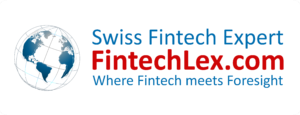Switzerland is a globally recognized financial hub, offering a robust regulatory framework for securities brokerage. Obtaining a securities brokerage license from the Swiss Financial Market Supervisory Authority (FINMA) is a key step for businesses aiming to operate within this highly reputable jurisdiction. This guide outlines the legal conditions, advantages, and process for securing a FINMA securities brokerage license.
For more detailed assistance with the licensing process, feel free to contact us at [email protected].
Advantages of a Swiss Securities Brokerage License
- Prestige and Credibility
- Switzerland’s strong financial reputation enhances the credibility of businesses operating under FINMA regulation, attracting high-value clients and institutional investors.
- Access to Global Markets
- A Swiss license opens the door to cross-border financial services and global market participation under Switzerland’s strong network of financial treaties.
- Regulatory Stability
- Switzerland provides a well-defined and stable regulatory framework, offering businesses long-term operational certainty.
- Client Confidence
- FINMA regulation assures clients of strict compliance with financial and anti-money laundering (AML) laws, fostering trust and loyalty.
- Operational Flexibility
- Swiss securities firms benefit from a tax-friendly environment and the ability to tailor their offerings to diverse international markets.
Legal Conditions for a FINMA Securities Brokerage License
- Capital Requirements
- A minimum fully paid-up capital of CHF 1.5 million is mandatory.
- Comprehensive Business Plan
- Applicants must submit a detailed business plan demonstrating compliance with capital adequacy and risk diversification rules.
- Management and Governance
- Effective management must be based in Switzerland, ensuring proper separation of trading, asset management, and settlement functions.
- The leadership team and strategic decision-makers must maintain an impeccable reputation.
- Internal Controls
- A robust internal control system, including an independent internal audit function, is required.
- Risk Management
- Mechanisms must be established to monitor and mitigate risks, including market, credit, operational, and legal risks.
- Audit Requirements
- Engage a recognized audit firm for the licensing process and ongoing regulatory audits.
The Licensing Process
- Preliminary Presentation
- Applicants should begin by presenting their project to FINMA. Initial communication can be made via email at [email protected].
- Application Submission
- Register on FINMA’s platform (EHP) to access the application process. This includes submitting required documentation, such as the business plan, organizational details, and internal control policies.
- Documentation and Review
- FINMA requires detailed supporting documents to assess compliance with legal and regulatory standards.
- Ongoing Dialogue
- FINMA engages in constant communication with applicants to address queries and provide guidance throughout the process.
Key Considerations
- Duration: The process timeline depends on the complexity of the application and external factors, such as feedback from foreign regulatory authorities.
- Thorough Preparation: Comprehensive documentation and clear risk management protocols are critical for timely approval.
Conclusion
Securing a FINMA securities brokerage license establishes your business as a trusted entity in Switzerland’s prestigious financial ecosystem. The Swiss license offers significant advantages, including enhanced credibility, access to global markets, and a stable regulatory environment. With proper planning and execution, your firm can gain a foothold in one of the world’s most respected financial markets.
For expert assistance with your application or to discuss your business needs, contact us at [email protected].




